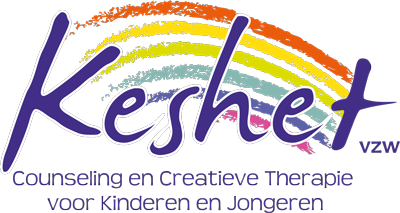“Success means having the courage, the determination and the will to become the person you believe you are meant to be.”
This page is for YOU! Are you a child, 6 to 12 years old? A teenager between 12 and 18 years? Or a young adult, 18 to 26 years old? We hope this page will answer your questions and allay your fears and concerns. If you still have any other questions, whether big or small, feel free to contact us through the contact page.
Why would you go for counselling?
Everyone goes through difficult stages in their life. These may be associated with an event happening in your environment or an important developmental stage in your life. Frequently you can handle this yourself by finding a parent, friend or mentor who can help you. This is not always possible. Sometimes the problems are too serious and make you falter. In this case extra support is needed. KESHET is a counselling service in the Jewish community and has extensive experience with guiding kids, teenagers and young adults between the ages of 6 and 26, with social-emotional problems. This refers to both issues you may have with yourself, or with your environment. In the next part you can read about ‘red flags’. These are signs that tell you that you need extra help from someone with experience.
When should you seek help or go to counselling?
If you or your family are confronted with situations you can’t cope with such as depression, illness, fear, loss, stress, burnout, or any of the red flags mentioned below, it is important to seek professional help as it’s impossible to solve these on your own.
Below are some of the challenging issues people face. If you identify with some of these symptoms, talk to someone who can advise and support you.
- Identity issue: not feeling good about yourself, unable to express yourself, indecisive, unable to get your life on track…
- Eating disorders: insecure about your body and weight, food obsession…
- Self image: low self-esteem, feelings of inferiority, jealous of others, never satisfied with yourself
- Depression: fed up with life, burnout in school or at your job, lethargic, feeling negative, suicidal ideation…
- Anxiety: extreme shyness, trouble falling asleep, fears, dependant on others, obsessive compulsive disorder…
- Processing issues: dealing with loss, insecure relationships, divorce…
- Relational difficulties: distancing yourself from others, bullying at school or work, feeling hostile or aggressive, attachment issues, unable to stick up for yourself…
- Developmental issues: Bar Mitzvah, dating/shiduchim, leaving home, loneliness, fear of the future, starting in a new school or job
- Dependency and addiction: addiction to alcohol or drugs, technology addiction, living with an addicted family member…
The way we work at KESHET
Dialogue, for both children and young adults is very powerful. In counselling you learn about yourself, think about the past and future and find your strengths within your environment. Together with your counsellor you explore and organise your experiences, thoughts and feelings. We work at your pace and with the medium that suits you.
But sometimes it’s hard to find the right words, and it’s hard to speak about what you are dealing with. That’s when we turn to creative methods.
Creative art therapy is more than just playing and crafts. It’s a unique therapy type that focuses on action and experience. It’s not the result that’s important, but the method and the work. It’s more about ‘daring to try ‘and ‘seeing what you enjoy’. We work with ‘drama’ methods, using improvisation, stories and pictures to express yourself. We also use artistic techniques, working with materials and activities like drawing, painting, arts and crafts, and clay.
The first thing we do after being contacted by you or your parent is to meet with you and hear your story. Next you get to discover the counselling room and the materials we have there. You can then choose what appeals to you, paint, clay, a book or maybe just being there in a safe place. You elect to work in your own way, be it big, small, quiet or loud. We try out things that you like to do. Then we arrange to meet weekly to work on your questions and what you want to accomplish.
Sometimes we feel that you will be better helped through a referral, so with your consent, we make the right recommendations and contacts to further help you.
Confidentiality
It is very common to have doubts when starting counselling. You may be scared or nervous for various reasons.
Confidentiality and caring are core principles of the therapeutic relationship and KESHET counsellors take all your concerns very seriously. We strive to make our clients secure and comfortable in this process providing privacy and discretion to the best of our ability.
